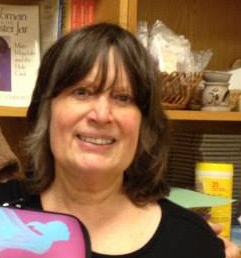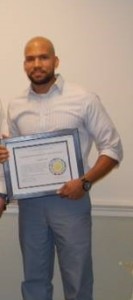The testimony of small children has usually been considered truthful unless proved otherwise. Over the past decade such testimony has led to convictions in many child-abuse cases, and the younger the child, the less likely psychologists have thought it was that information could have been fabricated. But now a series of recent studies has turned this conventional wisdom on its head.
Researchers have found new evidence that persistent questioning can lead young children to describe elaborate accounts of events that never occurred, even when at first they denied them.
The research is at the center of a continuing scientific debate over the vexing question of how much judges and juries should rely on a child’s word when that is the only evidence of abuse.
While earlier research raised questions about the reliability of small children’s accounts of sexual abuse, the new experimental studies are the first ones based on the methods commonly used to question children in legal cases.
These methods are used by investigators in cases like that of Margaret Kelly Michaels, the preschool teacher whose 1988 conviction on 115 counts of sexually abusing 19 children was overturned in March by a New Jersey appeals court. The charges against Ms. Michaels were based solely on assertions made by the 3- to 5-year-old children after they were extensively interviewed by investigators.
“Many people who specialize in these cases have a preconceived notion of what happened, and in the course of questioning suggest it to the child, who then report it as though it were true,” said Dr. Maggie Bruck, a psychologist at McGill University. She and Dr. Stephen Ceci, a psychologist at Cornell University, published a review of scientific studies of children’s suggestibility in the current issue of Psychological Bulletin.
Some researchers fear that the new findings will be used to muzzle investigators, leaving them unable to get children to report sexual abuse when it has actually occurred.
“It may take a certain amount of leading questioning to get a sexually abused child to disclose it,” said Dr. Gail Goodman, a psychologist at the University of California at Davis who was co-editor of “Child Victims, Child Witnesses: Understanding and Improving Testimony,” published last year by Guilford Press.
An estimated 20,000 children testify in sexual-abuse trials each year, and as many as 100,000 are involved in investigations, many of which never go to trial.
The new research focuses on children 6 years old and younger. A recent study of nearly 800 children identified as probable victims of sexual abuse in New York State found that close to 40 percent were in this age group. Children Concoct Stories
Certain techniques often used by investigators with young children increase the likelihood of false reports, the findings show. One is persistent, repeated questioning over periods of several weeks. When sexual abuse is suspected, children are typically asked the same questions by case workers, police investigators and lawyers, as well as parents, before they testify in court.
But that repetition may lead some young children to concoct stories, according to results of a study by Dr. Ceci and colleagues reported last month at a meeting on emotional memory at the University of Chicago.
In the study of children from 4 to 6, parents helped researchers make a list of two events that had occurred in each child’s life and eight that had not. In weekly sessions, the researchers reviewed the list with the child, asking for each event, “Has this ever happened to you?”
One 4-year-old boy, for example, answered truthfully, “No, I’ve never been to the hospital,” the first time he was asked if he had ever gone to the hospital because his finger had got caught in a mousetrap.
But the next week, in response to the same question, he volunteered, “Yes. I cried.” And by the 11th week of questioning, he was offering an elaborate tale about his brother’s pushing him into the mousetrap, near where his father was getting firewood.
Such accounts were common. By the 11th week, 56 percent of children reported at least one false event as true, and some children reported all the false events as true, Dr. Ceci said.
“The more often you ask young children to think about something, the easier it becomes for them to make something up that they think is a memory,” he said.
What is more, the accounts of those false memories are often quite believable. Dr. Ceci has shown videotapes of children recounting both true and false “memories” to more than 1,000 professionals who specialize in cases of child abuse, including lawyers, social workers and psychiatrists. Use of Dolls Criticized
“The experts are correct about whether the child’s account is accurate about one-third of the time,” Dr. Ceci said. “That’s worse than chance.”
Anatomically detailed dolls, which are often used in investigations of child abuse, have also been called into question by recent research findings. At the University of Chicago meeting, Dr. Ceci and his colleagues reported preliminary results from a study in which they questioned 3-year-olds who had just been given a physical examination. Half the exams included a standard inspection of the child’s genitals, half did not. Of those children who received no genital exam, 38 percent answered, “yes,” when a researcher pointed to the doll’s genitals and asked, “Did he touch you here?”


